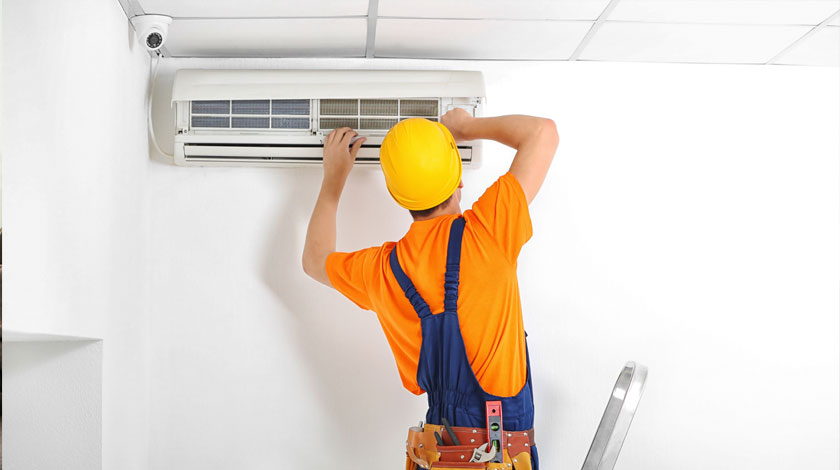
Diagnosing a Bad AC Run Capacitor: Signs and Solutions for Van Nuys Residents
Introduction
When the scorching summer heat hits Van Nuys, residents rely heavily on their air conditioning systems to keep their homes comfortable. However, nothing can be more frustrating than an AC unit that’s not functioning properly. One common culprit behind these cooling woes is a bad AC run capacitor. Understanding how to diagnose issues with your AC run capacitor can save you time, money, and discomfort during those sweltering days. In this article, we will explore the signs of a failing capacitor, troubleshooting tips, and solutions tailored specifically for Van Nuys residents.
Diagnosing a Bad AC Run Capacitor: Signs and Solutions for Van Nuys Residents
A run capacitor is vital for your air conditioning system as it provides the necessary electrical boost to the compressor and fan motors. When it begins to fail, your entire cooling system may suffer. Let’s dive into some critical signs of a bad run capacitor.
What is an AC Run Capacitor?
Before diagnosing issues, it's essential to understand what a run capacitor does. A run capacitor stores electrical energy and https://seasoncontrolhvac.com/service-area/hvac-service-in-van-nuys/ releases it to help start the compressor motor or fan motor in your AC unit. This component plays a pivotal role in maintaining efficiency and performance.
How Does a Run Capacitor Work?
When you turn on your air conditioning system, the thermostat signals the run capacitor to provide an extra jolt of electricity needed to start the motors. Once up and running, the capacitor continues to supply energy during operation. If it malfunctions, the system struggles to operate effectively.
Common Signs of a Bad AC Run Capacitor
- If your air conditioner fails to power on at all, it could indicate a bad run capacitor.
- A humming sound coming from your outdoor unit may suggest that the compressor is struggling due to insufficient electrical current.
- If your air conditioner shuts down unexpectedly or cycles on and off frequently, this could be another sign of capacitor failure.
- Are some rooms in your house cooler than others? Uneven cooling might point toward issues with your run capacitor.
- An inefficient AC unit often leads to increased energy consumption—keep an eye out for unusual spikes in your utility bills.
- Visually inspect the capacitor for bulging or leaking fluid; these are clear indicators something’s gone awry.
Troubleshooting Your AC Run Capacitor
Once you’ve identified potential symptoms of a failing run capacitor, you can start troubleshooting.
Safety First: Turn Off Power
Always prioritize safety! Before inspecting any internal components of your air conditioning unit:
- Turn off power at the breaker box.
- Use insulated tools if you're comfortable working with electrical components.
Visual Inspection
- Look for signs of swelling or leakage.
- Ensure all wires are securely connected.
- Examine wiring leading to other parts of your HVAC system.
- Look for any burnt connections which might indicate electrical faults.
Testing Your Capacitor: A Step-by-Step Guide
If visual inspection doesn’t reveal obvious issues, you may need to conduct a more thorough test using a multimeter:
- Make sure it's set to measure capacitance (farads).
- Take pictures or make notes about where each wire connects for easier reconnection later.
- Place leads from the multimeter onto corresponding terminals on the capacitor.
- Compare readings against manufacturer specifications (usually found on side of the capacitor).
- If readings are significantly lower than specified values, it's time to replace that pesky component!
Solutions: Replacing Your Bad AC Run Capacitor
Now that you’ve diagnosed the problem let’s discuss how residents in Van Nuys can resolve this issue efficiently:
DIY Replacement vs Professional Help
-
DIY Replacement: For those handy with tools and comfortable working with electrical components, replacing an AC run capacitor can be done independently following safety protocols outlined earlier.
-
Professional Help: If you're unsure or uncomfortable performing repairs yourself, it's wise to call an expert—especially in cases involving complex systems like HVAC units.
Finding Reliable AC Repair Services in Van Nuys
When searching for “AC repair Van Nuys,” consider these factors:
Frequently Asked Questions (FAQs)
1. What causes an AC run capacitor failure?
Many factors contribute to failure – age, extreme temperatures, power surges, and poor maintenance are common culprits.
2. How long does an AC run capacitor last?
Typically around 10-15 years but can vary based on usage patterns and environmental conditions.
3. Can I drive my car while my home has no AC?
Absolutely! Just ensure windows are open until repairs are made!
4. What should I do if my air conditioner starts making strange noises?
Turn off the unit immediately and consult professionals before attempting DIY fixes.
5. How much does it cost to replace an AC run capacitor?
Replacement prices range widely based on service fees; expect costs between $100-$300 typically including labor.


6. Is it worth repairing old units?
If regular breakdowns occur or if significant upgrades would improve efficiency—consider replacing rather than continuously repairing!

Conclusion
Diagnosing a bad AC run capacitor doesn’t have to be daunting for Van Nuys residents! By understanding what symptoms indicate failure and knowing how to troubleshoot effectively, you’ll be well-equipped when faced with cooling challenges during those hot summer months! Whether opting for DIY repairs or seeking professional help through trusted “AC repair Van Nuys” services—staying proactive ensures comfort at home year-round! Remember: regular maintenance checks can prevent most issues before they escalate into larger headaches down the line!